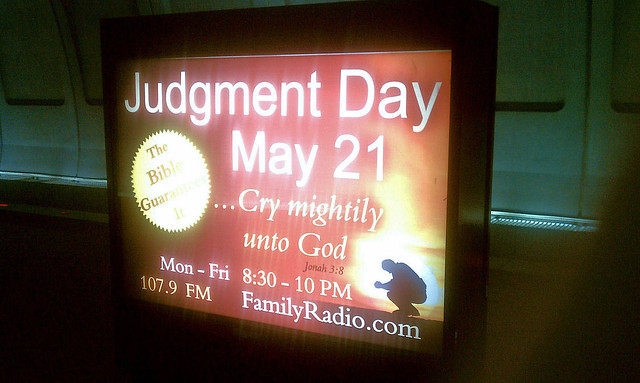
That was a revelation!
When we hear someone say this in daily life, we usually take it to mean that they are inspired, see an issue in a new light or learn something that deepens their understanding.
Revelation has become a secular term but the idea of ‘revealed knowledge’ is found in most spiritual traditions. In the religious sense, revelation has several different meanings.
One meaning points to knowledge disclosed or uncovered about God’s plan of Salvation or the Divine essence. This knowledge could influence the interpretation of observed events. And general revelation is differentiated from special revelation.
- General revelation means that God’s existence and attributes can be partly understood through observation of God’s creation
- Specific revelation points to the belief that individuals receive divine communications
In Catholicism revelation is a truth communicated to a person by God. Revealed knowledge initially bypasses but does not contradict the intellect and differs from inspiration. But after a revelation, a person may think about and be inspired by their otherworldly experience.
From a comparative study of mysticism it seems that revealed knowledge is usually misunderstood by mystics, themselves—at least, at the outset. Over time the true meaning may become more clear.
Mystics make mistakes because they tend to interpret revelation according to their limited, human perspectives. Again, revelations from God should eventually make more sense. But those not from God would eventually prove to be a sham, provided the persons assessing a revelation are mentally healthy.
This idea is linked to the notion of true and false prophets, as found in the New Testament:
Watch out for false prophets. They come to you in sheep’s clothing, but inwardly they are ferocious wolves. By their fruit you will recognize them. Do people pick grapes from thorn bushes, or figs from thistles? Likewise every good tree bears good fruit, but a bad tree bears bad fruit. A good tree cannot bear bad fruit, and a bad tree cannot bear good fruit. Every tree that does not bear good fruit is cut down and thrown into the fire. Thus, by their fruit you will recognize them.¹
That’s a lovely story and great for laying guilt trips on people if we don’t like what they’re doing or simply because we don’t like them in the first place! But in reality, it’s a bit problematic for us mere mortals.
Why?

Well, because some genuine prophets could appear ‘false’ if not enough time had passed to test a true revelation.² By the same token, some false prophets could be seen as ‘true’ by fanatics claiming that more time is needed to verify a false revelation.
One thing seems clear: This is not an easy area and many mistakes could be made by overly zealous, wish fulfilling individuals and groups. For those preferring to think for themselves, it’s sometimes hard to determine who’s misguided and who’s in tune with God.
—
¹ Matthew 15-20, New International Version, emphasis added.
² An example Christians often give here is http://biblehub.com/john/2-19.htm.










Jiddu Krishnamurti was an emotionally shutdown, control freak who was an agent for Satan – a very cunning one at that. Krisnamurti will eventually send one insane because one allows oneself to be exposed to other demons that are roaming around waiting for someone to devour. Jesus Christ eventfully delivered me, when I got down on my knees and asked Him to have mercy on me and forgive me my sins. If you are reading this, I beg you to stay clear of this FALSE PROPHET.
PEACE BE WITH YOU
MICKY
LikeLike
I’m no expert on JK but from what I gather at least he had the humility to reject the title of “Word Teacher” that some tried to thrust upon him.
LikeLike
“There are three monks, who had been sitting in deep meditation for many years amidst the Himalayan snow peaks, never speaking a word, in utter silence. One morning, one of the three suddenly speaks up and says, ‘What a lovely morning this is.’ And he falls silent again. Five years of silence pass, when all at once the second monk speaks up and says, ‘But we could do with some rain.’ There is silence among them for another five years, when suddenly the third monk says, ‘Why can’t you two stop chattering?”
http://www.katinkahesselink.net/kr/jokes.html
http://picasaweb.google.com/serendipidad0/FotosDeJidduKrishnamurti#
LikeLiked by 1 person